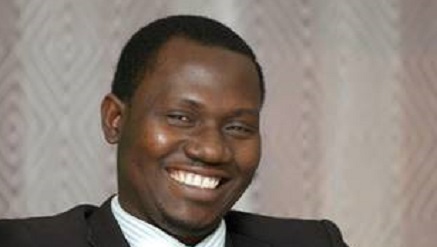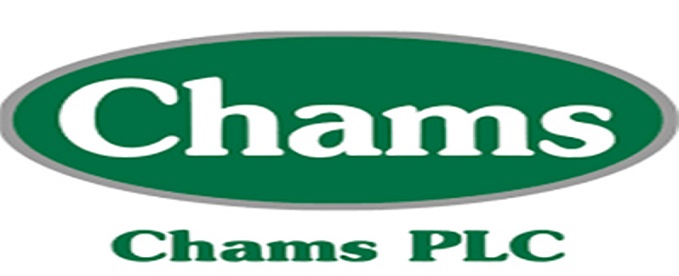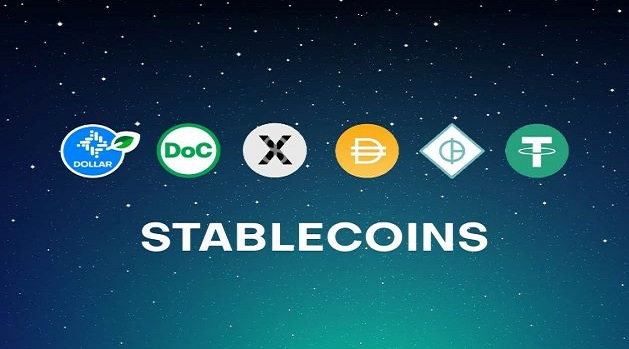E-Business
Coders at 13, Billionaires @ 30

In the last few days, the world celebrated another computer science week; a statutory commemoratory series of events which held between December 8th-14th of the world to recognize the huge contribution that the knowledge of computer science and engineering has added to our world.
The event aimed to introduce 10 million students of all ages to computer science ideas and tools—and to let them try coding for one hour—while also demonstrating to parents, teachers, and policymakers how accessible coding can be.
Technology as we know it today has changed the way we live, the way we love and learn.
From the 1 Billionth view of the Gangnam Style video on Youtube to the 1.9 Billionth impression of the #bringbackourgirls hashtag on twitter, our world is experiencing huge technological and social Metamorphosis having the duo of its merits and demerits.
It might be healthy however to simply focus on the positive contributions and see how focus on this can magnify the benefits over the ills.
As we think about the how the social media has ushered in a new culture of learning, buying and even consuming products, and we remember the billions of dollars locked in information assets, we must rethink business as usual.
CNN had once said that “the future of TV is Twitter and TV is the future of Twitter”. Amazon, the Internet Market Giant has such a small office space compared to the gigantic plants of Toyota and Ford, yet the company made it to top 20 most valuable brands in the world ahead of both automobile firms.
What is special to learn about the founders of Google, the Creator of Facebook and the father of Microsoft is that they all started investing in the knowledge of technology at a really young age.
Reading Malcom Gladwell’s outliers, I realized that Bill Gate had been learning to code and coding for six (6) years before he got into Harvard.
Steve jobs interned with Bill Hewlett co-founder with David Packard of HP before Mark Zuckerberg (founder of FACEBOOK) built what has today become the third largest ‘Nation’ in the world after China and India, he began using computers and writing software in middle school.
His father taught him Atari BASIC Programming in the 1990s, and later hired software developer David Newman to tutor him privately.
Code.org an international organization in support with sponsors including Microsoft and Omidyar Network is leading a huge campaign that will ensure that millions of line of codes are written and promote the knowledge of programming and computer science education all over the world. The Initiative has been dubbed the “Hour of Code”.
Tons of events were held all over the world to celebrate the Computer Science week and get millions of Children and youth to start coding. During the computer Science week in Nigeria, Microsoft Nigeria partnered with Wifi-Combat academy (an organization that trains children how to code and build mobile applications), to host the hour of Code Lagos.
This is part of the organization’s commitment as software, devices and services leader to transform Nigeria’s economy and build future information technology entrepreneurs.
In the ‘tweets’ of Satyr Nadella, Microsoft’s CEO, “Coding is fun! Help us get 100M students to see how it can help them achieve great things”.
This is my own submission, If they start coding at 13, they could be Billionaires at thirty, or to be modest something close.
We can only live what the technology of the future will look like to our lofty imaginations. In every way, within our sphere of influence, we can and should inspire children and youth to maximize tools like their mobile phones to create technology.
We cannot just remain consumers, we can turn the table around and one way to do this is to take charge of the creating side.
Which software(s) will run the technology consumed by the 200Million people who will live in Nigeria by 2025?
Who will write the software(s)? These two questions must be answered, and better answered in our favor.
The future is about quantum information, Information at the snap of thought, the age of speed, 4-dimensional representations, cloud computing and ubiquitous computing.
If we put the children in charge of this, that’s how to secure the future.
Olusola Amusan is the Citizenship Manager at Microsoft Nigeria. He manages all non-Profit and youth engagements, an inspirational speaker and inspiration to the nearly 60,000 young people he has trained in the past 5 years.
E-Business
Chams Carves Out Subsidiary to Support Africa’s Digital Transformation

Chams Holding Company Plc, (Chams Holdco), digital payments and verification firm, has created a new subsidiary which is expected to strengthen the push for Africa’s digital transformation.

The creation of the new subsidiary, ChamsCorp Plc, which took effect from February 1, was made known in a filing to the Nigerian Exchange Limited , according to an announcement.
Chams said that the new subsidiary, which is its 5th, will give a new dimension to its more than 40 years of work in building the digital ecosystem not only in Nigeria, but across the continent and the rest of the world.
The newly created company will focus on three major aspects, namely the manufacturing of digital devices and development of digital infrastructure and services; data center design, construction and operations, and the development and implementation of AI infrastructure and intelligent systems.
It will also contribute to its parent company’s digital ID, digital verification, and trust services offering.
“For nearly four decades, we’ve enabled trust in transactions and identity. Now, we go furthe”
Chams is expanding into AI, data centre infrastructure, and intelligent systems, building the backbone for Africa’s digital transformation,” the company wrote in a LinkedIn post.
“We are not just participating in the future. We are engineering it,” the message added.
According to the Chams announcement, a decision of its Board of Directors appointed members of the pioneer board of ChamsCorp Plc, with renowned banker Mohammed Bashir Yunusa designated as Chairman.
He is described as a well-known finance expert who specializes in deal structuring, corporate and retail finance, business strategy, digital transformation, and Islamic Finance and Banking.
With more than 10 years of experience in the financial services industry, Yunusa currently serves as head of Consumer and Digital Banking for Non-Interest Banking Retail at Sterling Bank Nigeria, and will also serve as a non-executive director on the board.
“Chamscorp is designed to take our most ambitious ideas to market at speed and scale. As Africa’s digital economy evolves, we are focused on delivering transformative solutions that empower governments, businesses, and citizens alike,” Femi Oyenuga, CEO, Chams, commented on the development.
Chams has over the years played a major role in contributing to Nigeria’s digital ID ecosystem development to facilitate access to financial services.
In 2023, the company Group Chairman publicly stated that in providing such digital services to the Nigerian government, it had incurred debts estimated at $100 million and were planning to change their business model as a result.
E-Business
Nigeria, South Africa Drive Stablecoin Spending in Africa

Africa has emerged as the global frontrunner in stablecoin adoption, with Nigeria and South Africa leading the charge with the fastest adoption rate, as transactions surge across the continent.

This is according to the Stablecoin Utility Report, compiled by YouGov on behalf of fintech firm BVNK.
The study, conducted in partnership with Coinbase and Artemis, surveyed over 4 600 early adopters and crypto-natives in 15 countries across five continents.
It shows people are turning to stablecoins to move money more quickly, securely and affordably – and how this shift in behaviour is becoming a worldwide trend beyond its roots in the Global South.
Stablecoin adoption is accelerating particularly rapidly across Africa in 2026, driven by currency volatility, high inflation and the need for cheaper, faster cross-border payments, it finds.
The Stablecoin Utility Report shows that 79% of African respondents hold stablecoins − the highest ownership rate globally − while 76% say they intend to acquire them in the near future.
Nigeria and SA lead the continent in everyday stablecoin spending, highlighting a shift from holding digital dollars as a store of value, to actively using them for commerce.
The appetite to be paid in stablecoins is even stronger: 95% expressed interest in receiving income via dollar-pegged digital assets, whether for salaries, freelance work or cross-border services, according to the study.
Anthony Yim, co-founder and CEO of crypto research firm Artemis, explains: “We’re experiencing a significant behavioural shift in the way people are using stablecoins.
“Crypto natives and early adopters are fully on board with stablecoins, using them to pay and be paid. This is driving mainstream, global adoption – stablecoin supply has increased 500% over the past five years. Alongside the passage of multiple legislation initiatives in numerous countries, it’s clear we’re experiencing a tipping point.”
From hedge to household spending
Unlike in some developed markets where stablecoins are viewed primarily as a payments upgrade, African users are deploying them as practical financial tools. Key use cases include hedging against inflation, facilitating remittances and funding day-to-day purchases.
The report finds that 92% of African respondents say the condition of their national economy directly affects their stablecoin usage − a reflection of currency volatility, capital controls and high remittance costs across several markets.
Africa also recorded the highest likelihood globally (89%) of users adopting stablecoin-linked debit cards, signalling demand for tighter integration between digital assets and traditional payments.
Infrastructure, not ideology
Taken together, the findings reinforce a broader thesis: stablecoins are evolving beyond a payment method into payments infrastructure, states the report.
For individuals, this means receiving income faster and at lower cost. For businesses, it enables borderless treasury operations and supplier payments. For financial platforms, it opens opportunities to embed stablecoin wallets, debit cards and cross-border settlement into core offerings.
This demand for institutional-grade integration is evident globally, with 77% of survey respondents saying they would open a stablecoin wallet if offered by their primary bank or fintech provider.
As adoption deepens in Africa and regulatory frameworks mature in developed markets, the data suggests stablecoins are no longer a niche crypto product − but a structural layer in the future of global money movement, notes BVNK.
E-Business
Kaspersky Reports 15% Growth in Malicious email Attacks in 2025

According to Kaspersky telemetry, almost every second email – 44.99% of global traffic – was spam in 2025. Spam consists not only of unsolicited emails, but can also include various email threats such as scam, phishing and malware.

In 2025, individuals and corporate users encountered over 144 million malicious and potentially unwanted email attachments, representing a 15% increase compared to the previous year figures.
In 2025, APAC had the largest share of email antivirus detections: it reached 30%, followed by Europe with 21%. Next came Latin America (16%) and the Middle East (15%), Russia and CIS (12%) and Africa (6%). As for individual countries, China had the highest rate of malicious and potentially unwanted email attachments, with the share of email antivirus detections of 14%. Russia ranked second (11%), followed by Mexico (8%), Spain (8%) and Turkey (5%).
Email antivirus detections peaked moderately in June, July and November.
Key trends in email spam and phishing
Kaspersky’s annual analysis has also identified several persistent trends in the email spam and phishing threat landscape that are expected to continue into 2026:
- Combination of various communication channels. Attackers lure email users into switching to messengers or calling fraudulent phone numbers. For instance, scam investment mailings may redirect victims to fake websites, where they are asked to provide their contact information, and then cybercriminals will follow up with a phone call.
- Usage of diverse evasion techniques in phishing and malicious emails. Threat actors frequently try to disguise phishing URLs, for example, with the help of link protection services and QR codes. These QR codes are often embedded directly in email bodies or within PDF attachments, which not only conceals phishing links but also encourages users to scan them on mobile devices, potentially exploiting weaker security measures than corporate PCs.
- Mailings exploiting diverse legitimate platforms. For example, Kaspersky experts discovered a fraudulent tactic that abuses OpenAI’s organisation creation and team invitation features to send spam emails from legitimate OpenAI addresses, potentially tricking users into clicking scam links or dialing fraudulent phone numbers. Additionally, a calendar-based phishing scheme, which originated in the late 2010s, resurfaced last year with a focus on corporate users.
- Refining tactics in business email compromise (BEC) attacks. In 2025 attackers attempted to become even more persuasive by incorporating fake forwarded emails into their correspondence. These emails lacked thread-index headers or other headers, making it difficult to verify their legitimacy within an email conversation.
“Email phishing shouldn’t be underestimated. Our report reveals that one in ten business attacks starts with phishing, with a significant proportion being Advanced Persistent Threats (APTs). In 2025, we saw an increase in the sophistication of targeted email attacks. Even the smallest details are meticulously crafted in these malicious campaigns, including the composition of sender addresses and the tailoring of content to real corporate events and processes.
“The commodification of generative AI has significantly amplified this threat, enabling attackers to craft convincing, personalised phishing messages at scale with minimal effort, automatically adapting tone, language and context to specific targets,” comments Roman Dedenok, anti-spam expert at Kaspersky.

 Telecom2 days ago
Telecom2 days agoTerra Moves to Expand in African Drone Sector, Secures $22m Funding

 Telecom2 days ago
Telecom2 days agoTemu Assures Compliance Amid Nigeria Data Privacy Probe

 E-Financial2 days ago
E-Financial2 days agoDMO Offers ₦800bn FGN Bonds in February Auction Surge

 E-Financial2 days ago
E-Financial2 days agoDanjuma, Taj Bank Staff Jailed for 5 Years over N22m Fraud

 E-Financial2 days ago
E-Financial2 days agoKPMG Outlook Reveals Financial Services CEOs Double down on AI, Resilience and Growth in 2026

 Telecom2 days ago
Telecom2 days agoMTN Group Announces Proposed Full Acquisition of IHS Towers

 News2 days ago
News2 days agoChianugo, Nigerian $150m suit Against Google, GoDaddy.com Stalled due Judge’s Absence

 General News2 days ago
General News2 days agoFG to Review MTN’s $6.2Bn IHS Acquisition — Tijani
























